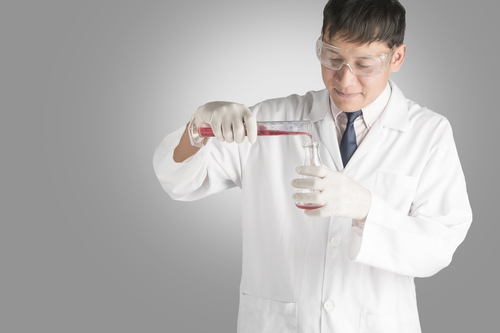 According to a recent study published in JAMA journal, patients with lymphoma currently undergoing a specific type of chemotherapy that includes receiving entecavir, an antiviral drug, had lower incidence of hepatitis B virus (HBV), HBV-related hepatitis and HBV reactivation in comparison to those receiving lamivudine.
According to a recent study published in JAMA journal, patients with lymphoma currently undergoing a specific type of chemotherapy that includes receiving entecavir, an antiviral drug, had lower incidence of hepatitis B virus (HBV), HBV-related hepatitis and HBV reactivation in comparison to those receiving lamivudine.
HBV reactivation is a well known consequence of chemotherapy, and it can be manifested in several ways such as severe and life threatening liver failure and interference with chemotherapy that can jeopardize clinical success and outcomes. Seropositive patients undergoing chemotherapy have a 26 to 53 percent of reported incidence regarding the hepatitis B surface antigen HBV reactivation; this risk of reactivation is a reality for those with lymphoma and treated with chemotherapy containing rituximab. Researchers have not determined an approach to prevent the HBV reactivation problem.
Researchers from the Sun Yat-sen University Cancer Center, China, assessed 121 seropositive patients for the hepatitis B surface antigen suffering with untreated and diffuse lymphoma (large B-cell) receiving chemotherapy with vincristine, rituximab, doxorubicin, cyclophosphamide and prednisone (R-CHOP) to entecavir (n = 61) and lamivudine (n = 60). The study occurred from February 2008 until December 2012 in ten different medical centers within China.
He Huang, the study’s lead researcher, and his colleagues found that patients treated with entecavir had much lower rates for hepatitis when compared to those treated with lamivudine (8.2 versus 23.3 percent); further, “HBV reactivation (6.6 percent vs 30 percent), delayed hepatitis B (0 percent vs 8.3 percent), and chemotherapy disruption (1.6 percent vs 18.3 percent),” according to data described in the press release.
About 24.6 percent of the patients that received entecavir treatment experience adverse events as a consequence against 30 percent of those treated with lamivudine.
The authors note that more studies are required to better understand this phenomenon. Since entecavir is way more expensive than lamivudine is important to make sure that is really needed that these seropositive patients for hepatitis B surface antigen receiving the rituximab-based immunosuppressive therapy should receive entecavir to prevent HBV.
Jeremy Abramson, from the Massachusetts General Hospital, Boston, added an editorial comment:
“For HBV carriers as well as patients with cleared HBV infection, entecavir prophylaxis can be recommended to reduce the rate of HBV reactivation and hepatitis. For patients unable to receive antiviral prophylaxis, HBV DNA viral loads must be closely monitored during and after completion of chemotherapy. A more nuanced approach may be possible, in which patients at low risk for HBV reactivation can be identified and preferentially followed up with surveillance alone, such as those who are seropositive for both the core antibody and surface antibody. The answer to this question warrants ongoing investigation, as does the definition of the optimal duration of prophylactic antiviral therapy. The screening for and management of patients infected with HBV who receive chemotherapy should be viewed as nothing less than optimal care of patients with lymphoma.”

